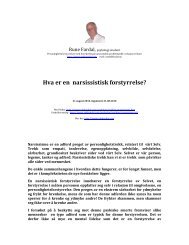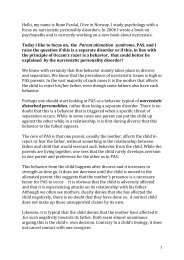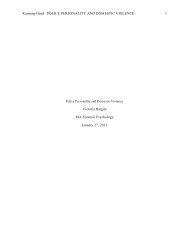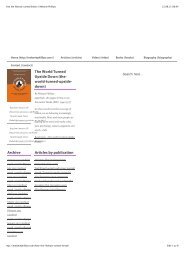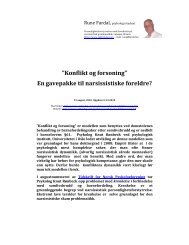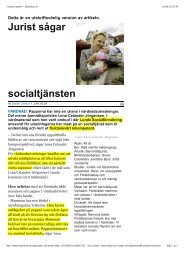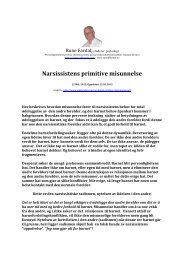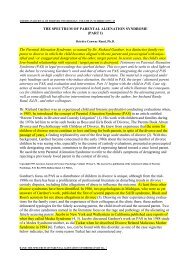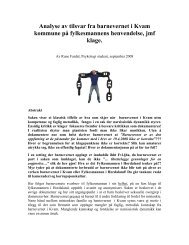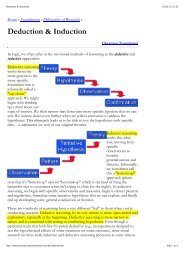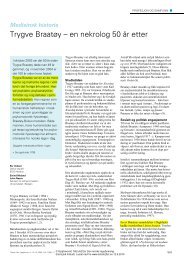The origins of narcissism and narcissistic personality disorder a
The origins of narcissism and narcissistic personality disorder a
The origins of narcissism and narcissistic personality disorder a
You also want an ePaper? Increase the reach of your titles
YUMPU automatically turns print PDFs into web optimized ePapers that Google loves.
62 JOHN S. AUERBACH<br />
<strong>The</strong> Empirical Critique <strong>of</strong> Psychoanalytic<br />
Developmental <strong>The</strong>ories<br />
Classical Critiques<br />
Problems with st<strong>and</strong>ard psychoanalytic formulations <strong>of</strong> early development<br />
were first noted in 1912 by Bleuler (cited in Vygotsky, 19341<br />
1986), who objected to Freud’s use <strong>of</strong> his (Bleuler’s) term autism <strong>and</strong><br />
who argued, on biological grounds, that realistic (socialized) thinking<br />
emerges before autistic (egocentric) thinking. Rejecting the notion <strong>of</strong><br />
hallucinatory wish fulfillment, Bleuler stated that lower animals have<br />
only realistic thinking available to them, that no viable organism could<br />
have the autistic function alone, that autistic thinking requires prior<br />
realistic experience, <strong>and</strong> that in a healthy human being, autistic thinking<br />
is always connected to realistic concerns.<br />
<strong>The</strong>se arguments long predate positions outlined by Fairbairn (1952),<br />
Holt (1967/1989) <strong>and</strong>, most recently, Stern (1985) that secondaryprocess<br />
(i.e., socialized or realistic) thinking must predate, <strong>and</strong> develop<br />
in close relationship with, primary-process (i.e., autistic, egocentric, or<br />
wishful) cognition. Lest the reader find Bleuler’s position too biological<br />
or too reductionistic, one must remember that these ideas are cited<br />
approvingly by Vygotsky (1934/1986) in his argument against the position<br />
that humans are initially egocentric, asocial monads who become<br />
socialized, adapted, <strong>and</strong> realistic only as a result <strong>of</strong> a long process <strong>of</strong><br />
development <strong>and</strong> the coercive imposition <strong>of</strong> societal norms. Instead,<br />
it is the received psychoanalytic view, namely that <strong>narcissism</strong> precedes<br />
object love, that is reductionistic. As Bleuler <strong>and</strong> Vygotsky argue, the<br />
relationship between autistic <strong>and</strong> realistic thinking is complex, <strong>and</strong> the<br />
two modes <strong>of</strong> cognition evolve together. That objections were raised<br />
this early to concepts like autism <strong>and</strong> primary objectlessness is quite<br />
striking.<br />
Recent Empirical Findings<br />
<strong>The</strong> more recent empirical critique <strong>of</strong> psychoanalytic developmental<br />
theory is already a well-known story. It begins with Bowlby’s (1958,<br />
1973, 1980, 1982) articulation <strong>of</strong> attachment theory <strong>and</strong> with empirical<br />
studies <strong>of</strong> attachment behavior in rhesus monkeys (Harlow, 1958) <strong>and</strong>




